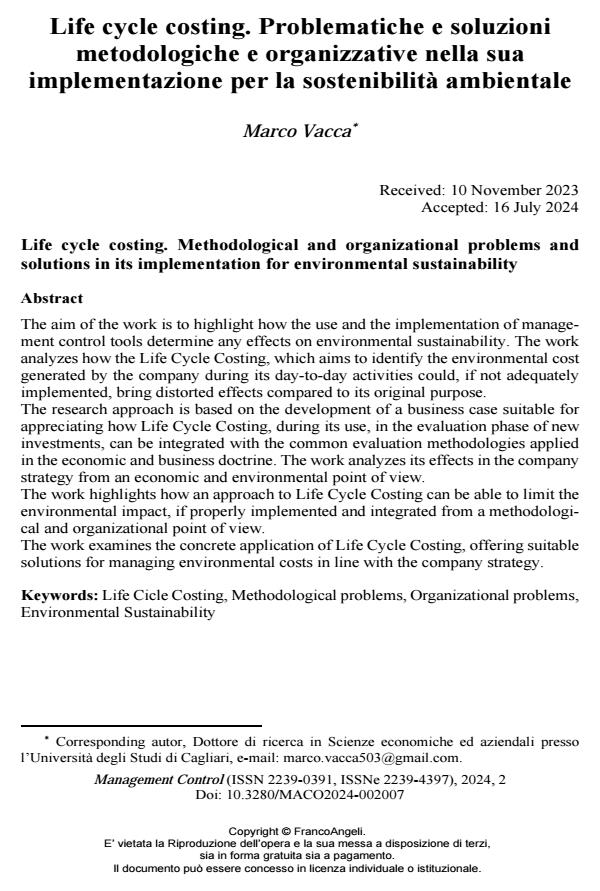Life cycle costing. Methodological and organizational problems and solutions in its implementation for environmental sustainability
Journal title MANAGEMENT CONTROL
Author/s Marco Vacca
Publishing Year 2024 Issue 2024/2
Language Italian Pages 20 P. 141-160 File size 304 KB
DOI 10.3280/MACO2024-002007
DOI is like a bar code for intellectual property: to have more infomation
click here
Below, you can see the article first page
If you want to buy this article in PDF format, you can do it, following the instructions to buy download credits

FrancoAngeli is member of Publishers International Linking Association, Inc (PILA), a not-for-profit association which run the CrossRef service enabling links to and from online scholarly content.
The aim of the work is to highlight how the use and the implementation of management control tools determine any effects on environmental sustainabil-ity. The work analyzes how the Life Cycle Costing, which aims to identify the environmental cost generated by the company during its day-to-day activities could, if not adequately implemented, bring distorted effects compared to its original purpose. The research approach is based on the development of a business case suitable for appreciating how Life Cycle Costing, during its use, in the evaluation phase of new investments, can be integrated with the common evaluation methodol-ogies applied in the economic and business doctrine. The work analyzes its effects in the company strategy from an economic and environmental point of view. The work highlights how an approach to Life Cycle Costing can be able to lim-it the environmental impact, if properly implemented and integrated from a methodological and organizational point of view. The work examines the concrete application of Life Cycle Costing, offering suitable solutions for managing environmental costs in line with the company strategy.
Keywords: Life Cicle Costing, Methodological problems, Organizational problems, Environmental Sustainability
Marco Vacca, Life cycle costing. Problematiche e soluzioni metodologiche e organizzative nella sua implementazione per la sostenibilità ambientale in "MANAGEMENT CONTROL" 2/2024, pp 141-160, DOI: 10.3280/MACO2024-002007